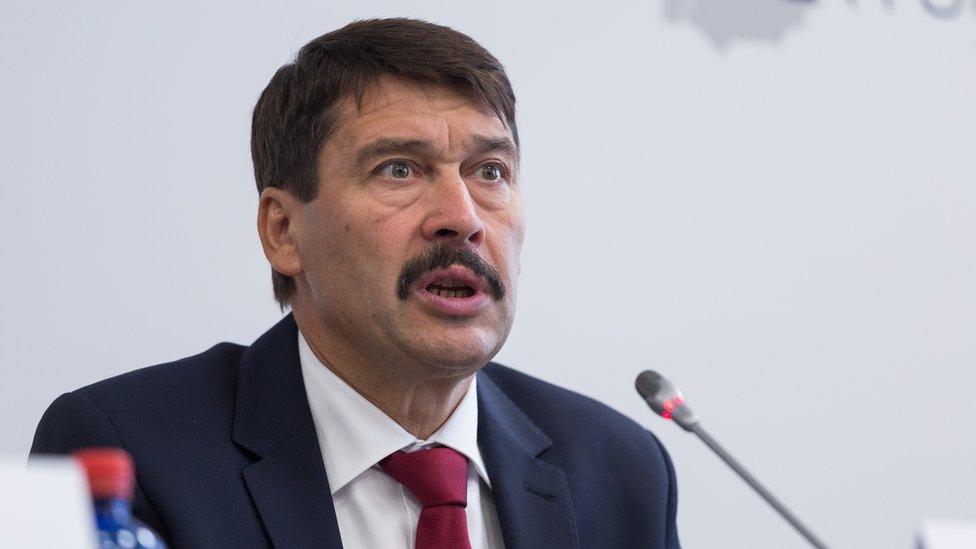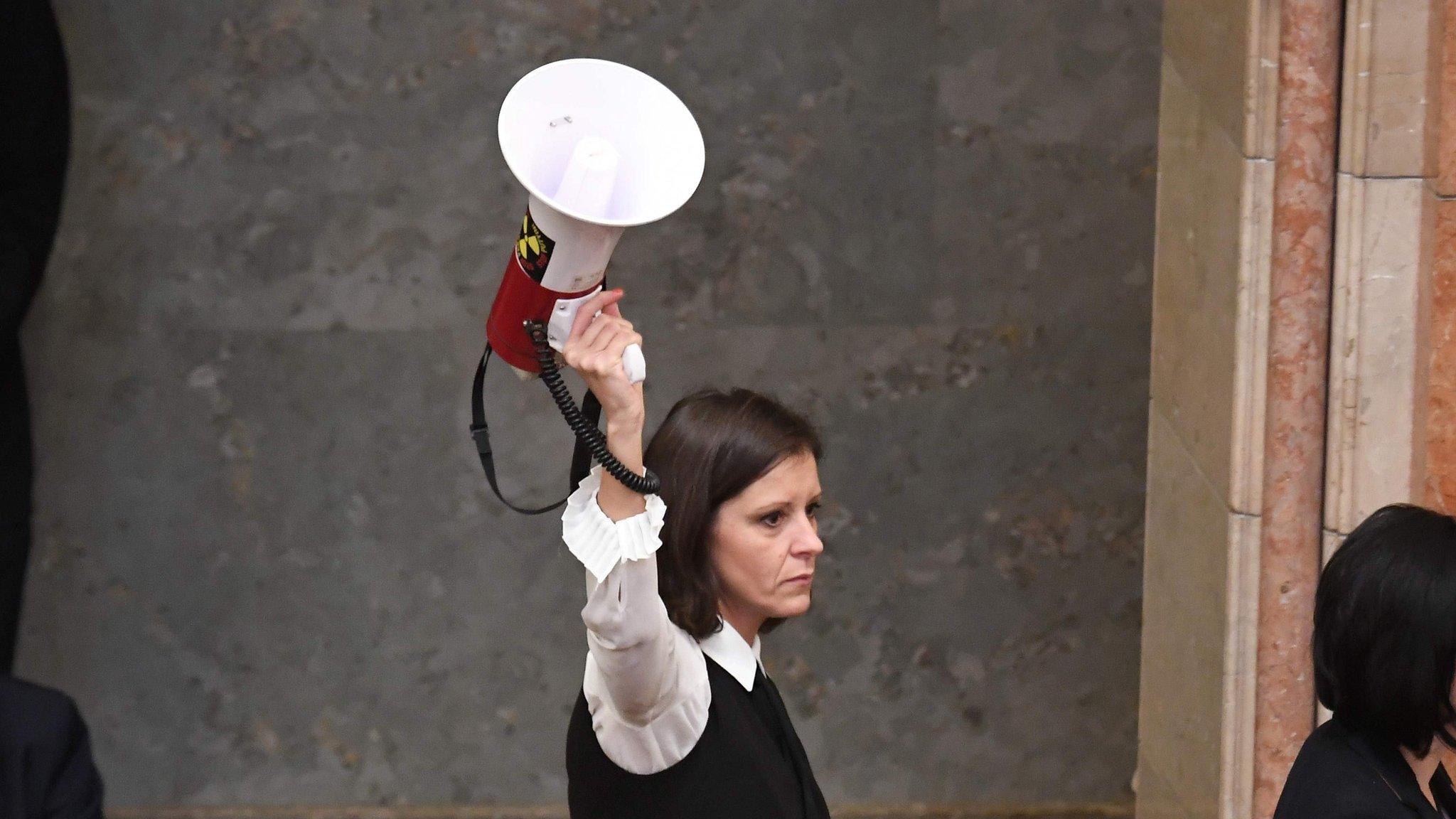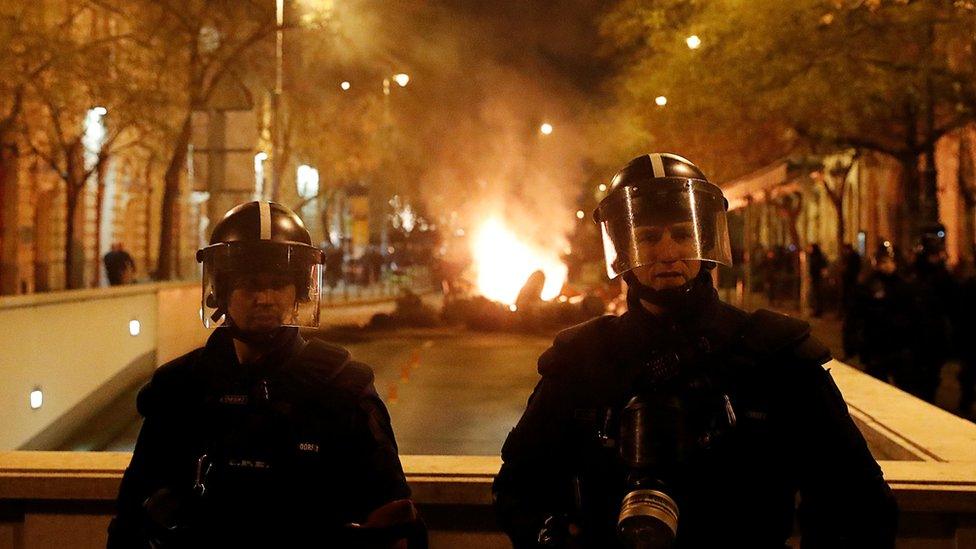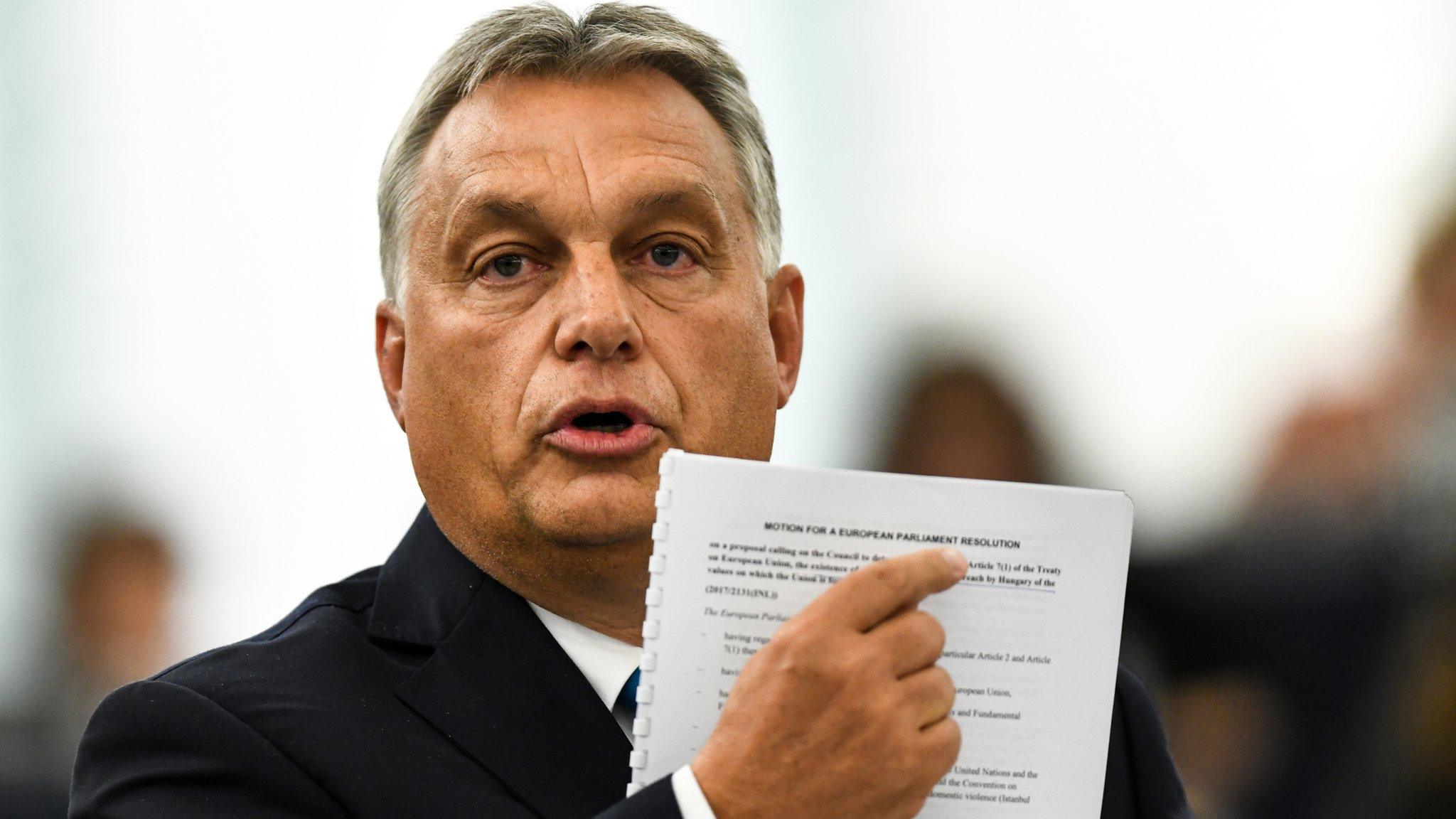Hungary president signs controversial 'slave law'
- Published

President Ader insists the labour reforms are no more strict than those found in comparable EU countries
Hungarian president Janos Ader has passed a new law that nearly doubles how much overtime employees can work.
The law boosts the overtime employers can demand from 250 to 400 hours, while payment can be delayed by three years.
Mr Ader said employees must give written consent and wouldn't be penalised for refusing extra hours.
It comes after days of protests in Hungary against the so-called 'slave law,' which Hungary's parliament approved on 12 December.
"I studied the changes to the labour law, and its provisions do not run contrary to the constitution," Mr Ader said in a statement.
He also argued that the terms of the new law were no more strict that labour regulations in other comparable EU countries.
Sixteen trade unions are reportedly planning strikes in Hungary as a response to the reforms.
Last Sunday, at least 10,000 protestors gathered in the capital Budapest during a fifth consecutive day of demonstrations.
During protests, two MPs were thrown out of the offices of state broadcaster MTVA for trying to broadcast a petition against the measures.
An MP broadcast a livestream of the confrontation
In a video shot by a local activist, the two MPs were thrown out of the TV station could be heard shouting in protest at security guards during the scuffle.
Prime Minister Viktor Orban's policies have typically enjoyed widespread support, despite repeated condemnation from other EU nations.
In elections earlier this year, the prime minister's Fidesz party won a two-thirds majority in parliament, making it relatively easy to enact his policies.

Hungary has experienced days of protests since the so-called 'slave law' was approved by parliament last week
Why does the government say reforms are needed?
The government says the laws address a serious labour shortage. The country's unemployment rate, at 4.2% in 2017, is one of the lowest in the EU.
Hungary's population has been in decline for years, as deaths outpace births, according to the European statistics agency.
Hungary is also experiencing a "brain drain" as well-educated people take advantage of free movement within Europe. The problem is serious enough to have prompted a 2015 programme to encourage young people to return home, offering housing and employment support.
Fidesz MEP Gyorgy Schopflin previously told the BBC the reforms had been "heavily distorted by the opposition".
There was "no coercion" involved in working overtime, and workers would be "paid monthly, not in three years", he said.
The governing Fidesz party has said protests are the work of foreign mercenaries paid by Hungarian-born US billionaire George Soros.
Mr Soros denies this and says the Hungarian authorities are using him as a scapegoat.
- Published17 December 2018

- Published13 December 2018

- Published12 September 2018

- Published20 June 2018
